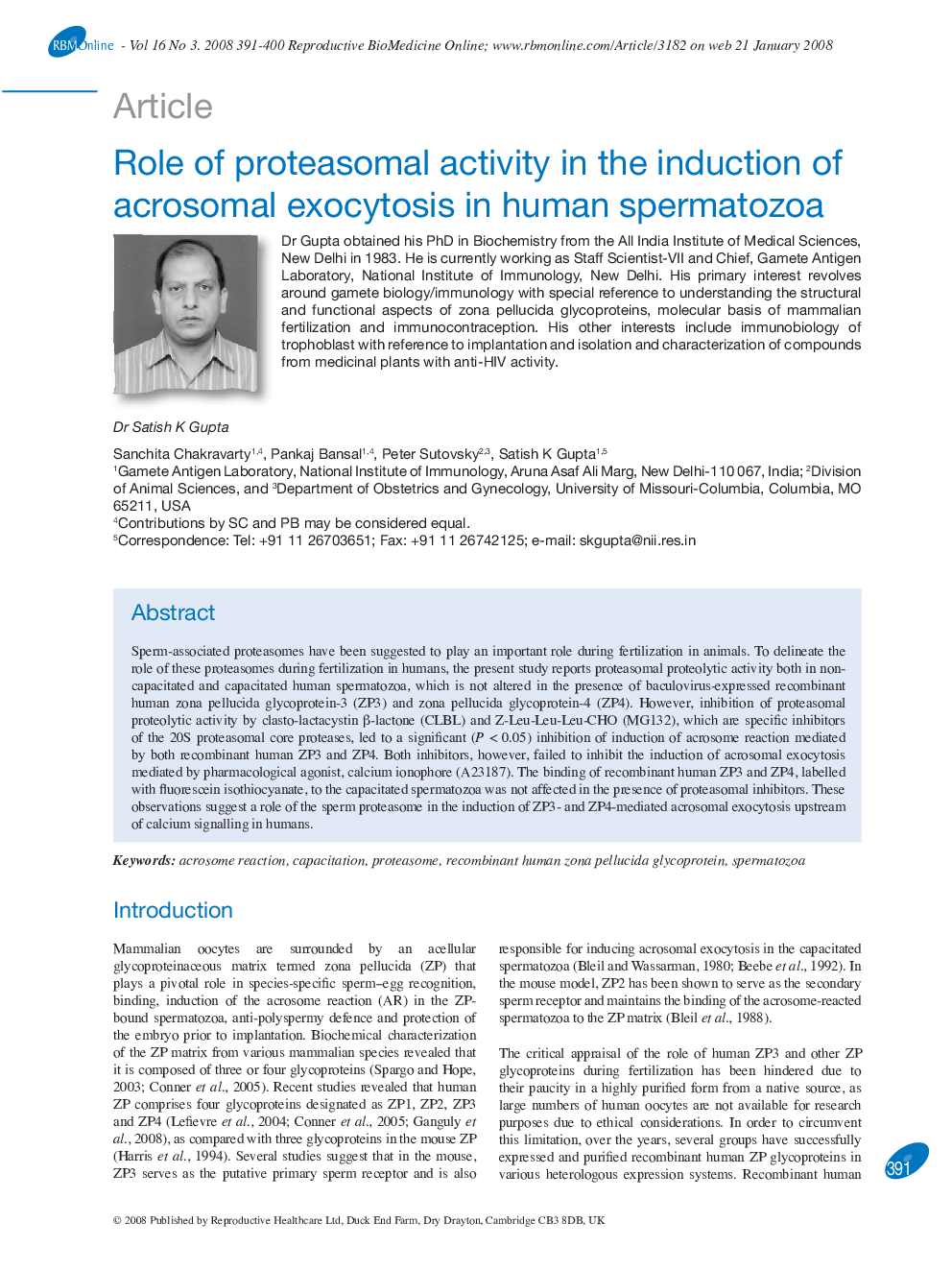| Article ID | Journal | Published Year | Pages | File Type |
|---|---|---|---|---|
| 3972756 | Reproductive BioMedicine Online | 2008 | 10 Pages |
Sperm-associated proteasomes have been suggested to play an important role during fertilization in animals. To delineate the role of these proteasomes during fertilization in humans, the present study reports proteasomal proteolytic activity both in non-capacitated and capacitated human spermatozoa, which is not altered in the presence of baculovirus-expressed recombinant human zona pellucida glycoprotein-3 (ZP3) and zona pellucida glycoprotein-4 (ZP4). However, inhibition of proteasomal proteolytic activity by clasto-lactacystin β-lactone (CLBL) and Z-Leu-Leu-Leu-CHO (MG132), which are specific inhibitors of the 20S proteasomal core proteases, led to a significant (P < 0.05) inhibition of induction of acrosome reaction mediated by both recombinant human ZP3 and ZP4. Both inhibitors, however, failed to inhibit the induction of acrosomal exocytosis mediated by pharmacological agonist, calcium ionophore (A23187). The binding of recombinant human ZP3 and ZP4, labelled with fluorescein isothiocyanate, to the capacitated spermatozoa was not affected in the presence of proteasomal inhibitors. These observations suggest a role of the sperm proteasome in the induction of ZP3- and ZP4-mediated acrosomal exocytosis upstream of calcium signalling in humans.
